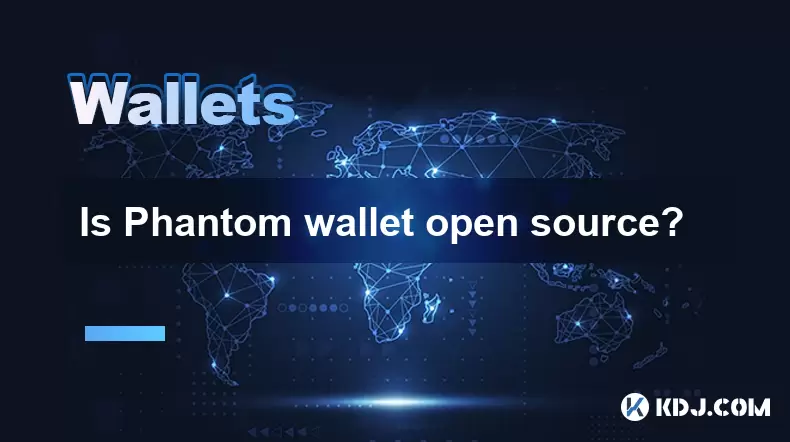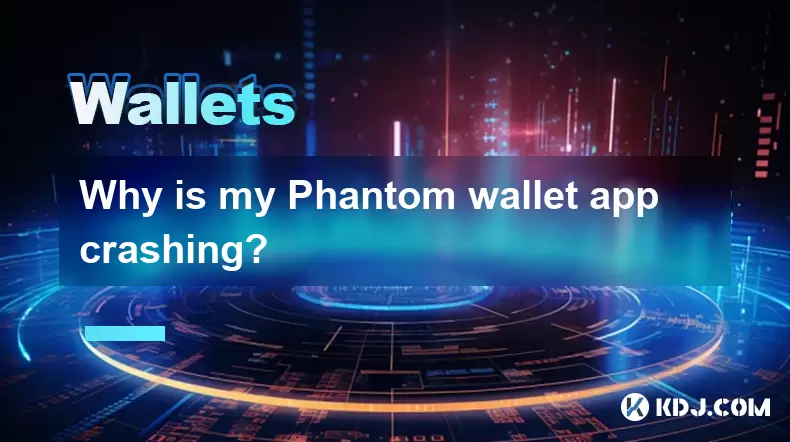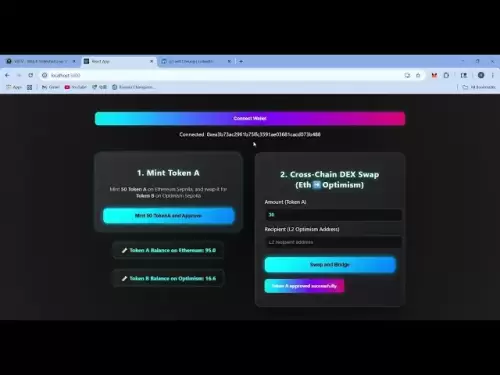-
 Bitcoin
Bitcoin $109,459.7682
2.44% -
 Ethereum
Ethereum $2,598.6052
6.29% -
 Tether USDt
Tether USDt $1.0003
0.00% -
 XRP
XRP $2.2734
3.95% -
 BNB
BNB $661.4886
1.58% -
 Solana
Solana $155.4825
4.35% -
 USDC
USDC $0.9999
-0.02% -
 TRON
TRON $0.2838
1.04% -
 Dogecoin
Dogecoin $0.1740
8.25% -
 Cardano
Cardano $0.6047
9.04% -
 Hyperliquid
Hyperliquid $40.2302
6.50% -
 Sui
Sui $2.9863
10.05% -
 Bitcoin Cash
Bitcoin Cash $509.5786
0.60% -
 Chainlink
Chainlink $13.8156
6.03% -
 UNUS SED LEO
UNUS SED LEO $9.0142
0.69% -
 Avalanche
Avalanche $19.0337
8.68% -
 Stellar
Stellar $0.2438
5.17% -
 Toncoin
Toncoin $2.9012
3.59% -
 Shiba Inu
Shiba Inu $0.0...01210
6.20% -
 Litecoin
Litecoin $90.0882
7.05% -
 Hedera
Hedera $0.1597
8.53% -
 Monero
Monero $326.3340
2.88% -
 Polkadot
Polkadot $3.6365
9.32% -
 Bitget Token
Bitget Token $4.6162
2.72% -
 Dai
Dai $1.0001
0.00% -
 Ethena USDe
Ethena USDe $1.0002
-0.01% -
 Uniswap
Uniswap $7.6403
10.47% -
 Pepe
Pepe $0.0...01060
12.03% -
 Aave
Aave $281.3664
7.56% -
 Pi
Pi $0.4992
1.76%
Does the Exodus wallet support hardware wallets?
Exodus wallet supports hardware wallets like Trezor Model T and Ledger devices, enhancing crypto security by keeping private keys offline.
Apr 07, 2025 at 12:15 pm

Introduction to Exodus Wallet and Hardware Wallets
Exodus wallet is a popular software wallet that offers a user-friendly interface for managing various cryptocurrencies. One of the key concerns for cryptocurrency users is the security of their assets, which is where hardware wallets come into play. Hardware wallets are physical devices that store private keys offline, providing an additional layer of security against online threats. Given the importance of security in the crypto world, many users wonder if Exodus wallet supports hardware wallets. In this article, we will explore the compatibility of Exodus wallet with hardware wallets and discuss the steps to integrate them.
Understanding Hardware Wallets
Hardware wallets are designed to keep your private keys offline, making them immune to hacking attempts that target online systems. Some of the most popular hardware wallets include Ledger, Trezor, and KeepKey. These devices connect to your computer or mobile device via USB or Bluetooth, allowing you to sign transactions securely. The primary advantage of using a hardware wallet is that your private keys never leave the device, significantly reducing the risk of theft. This makes them an excellent choice for long-term storage of cryptocurrencies.
Exodus Wallet: An Overview
Exodus wallet is known for its sleek design and ease of use. It supports over 100 different cryptocurrencies, including Bitcoin, Ethereum, and many others. The wallet is available for desktop and mobile platforms, making it accessible to a wide range of users. Exodus also offers features like built-in exchange services, allowing users to swap one cryptocurrency for another directly within the wallet. Despite its many features, the primary focus of Exodus is to provide a secure and user-friendly experience for managing digital assets.
Compatibility of Exodus Wallet with Hardware Wallets
Exodus wallet does support hardware wallets, but the level of integration varies depending on the specific hardware wallet model. Currently, Exodus has full integration with the Trezor Model T and partial integration with the Ledger Nano S and Ledger Nano X. Full integration means that you can manage your assets directly from the Exodus interface, while partial integration requires you to use the hardware wallet's software in conjunction with Exodus. This section will delve into the specifics of how to use different hardware wallets with Exodus.
Using Trezor Model T with Exodus Wallet
The Trezor Model T is fully integrated with Exodus wallet, allowing for a seamless user experience. To use your Trezor Model T with Exodus, follow these steps:
- Download and install the latest version of Exodus wallet.
- Connect your Trezor Model T to your computer using a USB cable.
- Open Exodus and click on the "Hardware Wallet" option in the left sidebar.
- Select "Trezor" and follow the on-screen instructions to connect your device.
- Once connected, you can manage your cryptocurrencies directly from the Exodus interface, with all transactions signed securely on your Trezor Model T.
This integration ensures that your private keys remain secure on the hardware wallet while you enjoy the user-friendly features of Exodus.
Using Ledger Nano S and Ledger Nano X with Exodus Wallet
Exodus wallet offers partial integration with the Ledger Nano S and Ledger Nano X. This means that while you can use these devices with Exodus, you will need to use the Ledger Live software in conjunction with Exodus. Here's how to set it up:
- Download and install the latest version of Exodus wallet and Ledger Live.
- Connect your Ledger device to your computer using a USB cable.
- Open Ledger Live and ensure your device is set up and unlocked.
- Open Exodus and click on the "Hardware Wallet" option in the left sidebar.
- Select "Ledger" and follow the on-screen instructions to connect your device.
- You will need to switch between Ledger Live and Exodus to manage your assets, as some actions will require you to use Ledger Live directly.
While this setup is slightly more complex, it still allows you to benefit from the security of a hardware wallet while using Exodus.
Benefits of Using Hardware Wallets with Exodus
Using a hardware wallet with Exodus wallet offers several benefits. Firstly, it enhances the security of your cryptocurrencies by keeping your private keys offline. This is particularly important for users who hold significant amounts of digital assets. Secondly, the integration of hardware wallets with Exodus allows you to enjoy the user-friendly interface of Exodus while maintaining the highest level of security. Additionally, the ability to manage multiple cryptocurrencies within one platform, combined with the security of a hardware wallet, provides a comprehensive solution for crypto management.
Potential Drawbacks and Considerations
While using a hardware wallet with Exodus offers many advantages, there are some potential drawbacks to consider. The partial integration with Ledger devices can be less user-friendly, as it requires switching between different software applications. Additionally, hardware wallets come with an upfront cost, which may be a barrier for some users. It's also important to keep your hardware wallet firmware up to date to ensure the highest level of security. Despite these considerations, the benefits of using a hardware wallet with Exodus often outweigh the drawbacks for users who prioritize security.
Future Developments and Updates
Exodus wallet is continually working to improve its integration with hardware wallets. The team behind Exodus regularly releases updates to enhance user experience and security. Future developments may include full integration with more hardware wallet models, making it even easier for users to manage their assets securely. Keeping an eye on Exodus's official announcements and updates can help you stay informed about new features and improvements in hardware wallet integration.
Conclusion
Exodus wallet's support for hardware wallets provides users with a robust solution for managing their cryptocurrencies securely. Whether you choose to use the fully integrated Trezor Model T or the partially integrated Ledger devices, you can enjoy the benefits of both a user-friendly interface and high-level security. As the crypto space continues to evolve, staying informed about the latest developments in wallet technology will help you make the best choices for your digital asset management.
Frequently Asked Questions
What is a hardware wallet?
A hardware wallet is a physical device that stores your private keys offline, providing an additional layer of security against online threats. Popular models include Ledger, Trezor, and KeepKey.
Does Exodus wallet support hardware wallets?
Yes, Exodus wallet supports hardware wallets. It has full integration with the Trezor Model T and partial integration with the Ledger Nano S and Ledger Nano X.
How do I use a Trezor Model T with Exodus wallet?
To use a Trezor Model T with Exodus, download and install the latest version of Exodus, connect your Trezor to your computer, open Exodus, select "Hardware Wallet" and then "Trezor," and follow the on-screen instructions to connect your device.
How do I use a Ledger Nano S or Ledger Nano X with Exodus wallet?
To use a Ledger device with Exodus, download and install the latest versions of Exodus and Ledger Live, connect your Ledger to your computer, open Ledger Live to set up and unlock your device, then open Exodus, select "Hardware Wallet" and then "Ledger," and follow the on-screen instructions to connect your device. You will need to switch between Ledger Live and Exodus to manage your assets.
What are the benefits of using a hardware wallet with Exodus?
Using a hardware wallet with Exodus enhances the security of your cryptocurrencies by keeping your private keys offline, allows you to enjoy the user-friendly interface of Exodus, and provides a comprehensive solution for managing multiple cryptocurrencies.
Are there any drawbacks to using a hardware wallet with Exodus?
Yes, the partial integration with Ledger devices can be less user-friendly, hardware wallets come with an upfront cost, and you need to keep the firmware up to date. Despite these, the benefits often outweigh the drawbacks for users prioritizing security.
What future developments can we expect for hardware wallet integration with Exodus?
Exodus is continually working to improve its integration with hardware wallets. Future developments may include full integration with more hardware wallet models, enhancing user experience and security.
Disclaimer:info@kdj.com
The information provided is not trading advice. kdj.com does not assume any responsibility for any investments made based on the information provided in this article. Cryptocurrencies are highly volatile and it is highly recommended that you invest with caution after thorough research!
If you believe that the content used on this website infringes your copyright, please contact us immediately (info@kdj.com) and we will delete it promptly.
- Crypto Summer Buys: Is Shiba Inu Out, and What's In?
- 2025-07-03 18:30:12
- Bitcoin, Solaris Presale, and Coin Watch: Catching the Next Wave
- 2025-07-03 19:10:11
- BONK ETF Buzz: Catalyst for a Meme Coin Moonshot?
- 2025-07-03 19:50:12
- Sui Coin, Bitcoin Solaris, and the Presale Opportunity: Catching the Next Wave
- 2025-07-03 19:50:12
- Sui Coin, Bitcoin Solaris, and Presale Opportunities: What's the Buzz?
- 2025-07-03 19:55:14
- MEXC's Bitcoin Reserves: A Fortress of Asset Coverage
- 2025-07-03 19:55:14
Related knowledge

How to cancel a pending transaction in Phantom wallet?
Jul 03,2025 at 07:21pm
Understanding Pending Transactions in Phantom WalletA pending transaction in the Phantom wallet occurs when a user initiates a transfer or interaction with the Solana blockchain, but it hasn't yet been confirmed by the network. This can happen due to various reasons such as low transaction fees, network congestion, or incorrect gas settings. It's import...

How to lock my Phantom wallet extension?
Jul 03,2025 at 11:14am
What Is the Phantom Wallet and Why Lock It?The Phantom wallet is a popular non-custodial cryptocurrency wallet designed for interacting with the Solana blockchain. Supporting both browser extensions and mobile apps, Phantom allows users to store, send, receive, and stake SOL tokens, as well as interact with decentralized applications (dApps). Securing y...

Does Phantom wallet offer two-factor authentication (2FA)?
Jul 03,2025 at 09:00am
Understanding Phantom Wallet and Its Security FeaturesPhantom wallet is a widely used non-custodial cryptocurrency wallet that supports the Solana blockchain. It allows users to store, send, receive, and interact with decentralized applications (dApps) seamlessly. As security is a top priority for any crypto wallet user, security features like two-facto...

What is "rent" on Solana and how does it affect my Phantom wallet?
Jul 02,2025 at 08:35pm
Understanding 'Rent' on SolanaIn the context of Solana, the term 'rent' refers to a storage fee that users pay for maintaining data on the blockchain. Unlike Ethereum, where storage costs are paid once via gas fees during contract deployment, Solana implements a recurring cost model to ensure efficient usage of network resources. This means that any acc...

Is Phantom wallet open source?
Jul 03,2025 at 12:29am
What is Phantom Wallet?Phantom wallet is a non-custodial cryptocurrency wallet primarily designed for the Solana blockchain. It allows users to store, send, receive, and interact with decentralized applications (dApps) on the Solana network. The wallet is available as a browser extension and mobile application, offering a seamless experience for both be...

Why is my Phantom wallet app crashing?
Jul 02,2025 at 07:35pm
Understanding Phantom Wallet App CrashesIf you're experiencing issues with the Phantom wallet app crashing, you're not alone. Many users have reported similar problems, especially during high network activity or after recent updates. Phantom is a popular Solana-based wallet that allows users to store, send, and receive SOL tokens as well as interact wit...

How to cancel a pending transaction in Phantom wallet?
Jul 03,2025 at 07:21pm
Understanding Pending Transactions in Phantom WalletA pending transaction in the Phantom wallet occurs when a user initiates a transfer or interaction with the Solana blockchain, but it hasn't yet been confirmed by the network. This can happen due to various reasons such as low transaction fees, network congestion, or incorrect gas settings. It's import...

How to lock my Phantom wallet extension?
Jul 03,2025 at 11:14am
What Is the Phantom Wallet and Why Lock It?The Phantom wallet is a popular non-custodial cryptocurrency wallet designed for interacting with the Solana blockchain. Supporting both browser extensions and mobile apps, Phantom allows users to store, send, receive, and stake SOL tokens, as well as interact with decentralized applications (dApps). Securing y...

Does Phantom wallet offer two-factor authentication (2FA)?
Jul 03,2025 at 09:00am
Understanding Phantom Wallet and Its Security FeaturesPhantom wallet is a widely used non-custodial cryptocurrency wallet that supports the Solana blockchain. It allows users to store, send, receive, and interact with decentralized applications (dApps) seamlessly. As security is a top priority for any crypto wallet user, security features like two-facto...

What is "rent" on Solana and how does it affect my Phantom wallet?
Jul 02,2025 at 08:35pm
Understanding 'Rent' on SolanaIn the context of Solana, the term 'rent' refers to a storage fee that users pay for maintaining data on the blockchain. Unlike Ethereum, where storage costs are paid once via gas fees during contract deployment, Solana implements a recurring cost model to ensure efficient usage of network resources. This means that any acc...

Is Phantom wallet open source?
Jul 03,2025 at 12:29am
What is Phantom Wallet?Phantom wallet is a non-custodial cryptocurrency wallet primarily designed for the Solana blockchain. It allows users to store, send, receive, and interact with decentralized applications (dApps) on the Solana network. The wallet is available as a browser extension and mobile application, offering a seamless experience for both be...

Why is my Phantom wallet app crashing?
Jul 02,2025 at 07:35pm
Understanding Phantom Wallet App CrashesIf you're experiencing issues with the Phantom wallet app crashing, you're not alone. Many users have reported similar problems, especially during high network activity or after recent updates. Phantom is a popular Solana-based wallet that allows users to store, send, and receive SOL tokens as well as interact wit...
See all articles

























































































